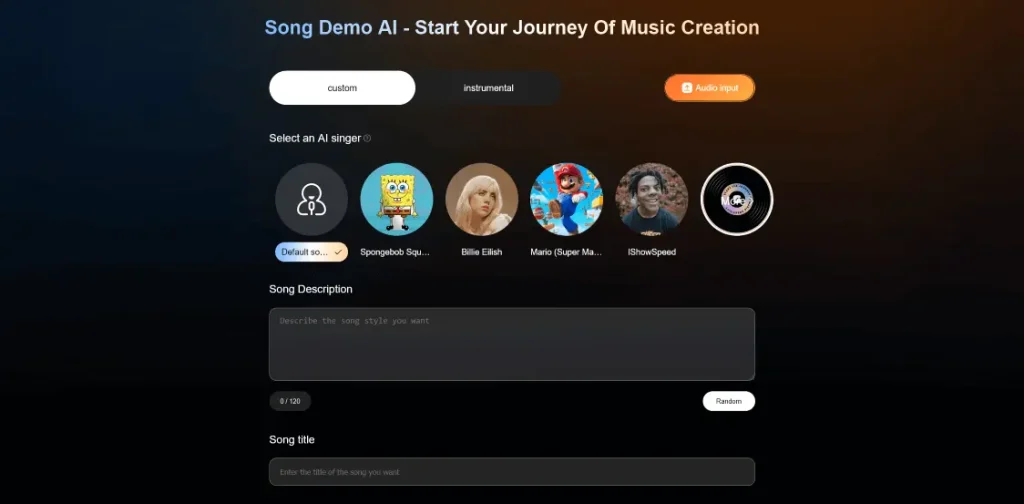Now Reading: Song Demo AI
1
-
01
Song Demo AI
Song Demo AI

Song Demo AI is an AI music generator designed to bring your musical ideas to life! Whether you’re an aspiring musician, a seasoned producer, or just someone who loves to create, Song Demo AI provides all the tools you need to craft your next hit. Here’s how Song Demo AI can elevate your music creation:
- AI Singer:
Bring your songs to life with the revolutionary AI Singer feature. Choose from a diverse range of virtual voices that can sing your lyrics in any style or language. Whether you’re aiming for a pop anthem, a soulful ballad, or an experimental track, Song Demo AI’s AI-powered voices deliver stunning performances that sound both realistic and expressive. It’s like having a virtual singer at your fingertips, ready to turn your lyrics into captivating songs. - Music Generator:
Simply enter your lyrics, select a song style, and input your song title to generate music instantly. Whether you’re in need of a beat maker, a music maker, or a full song generator, Song Demo AI transforms your ideas into fully realized tracks. - Audio Input:
Record or upload your own audio, and let Song Demo AI turn your inspirations into polished, high-quality music. With AI for music, you can create wherever and whenever inspiration strikes. - Separation:
Extract sounds, accompaniments, and instruments from any audio or video file. Use these elements to craft new compositions, making Song Demo AI an indispensable tool for musicians and producers looking to experiment and innovate.





























